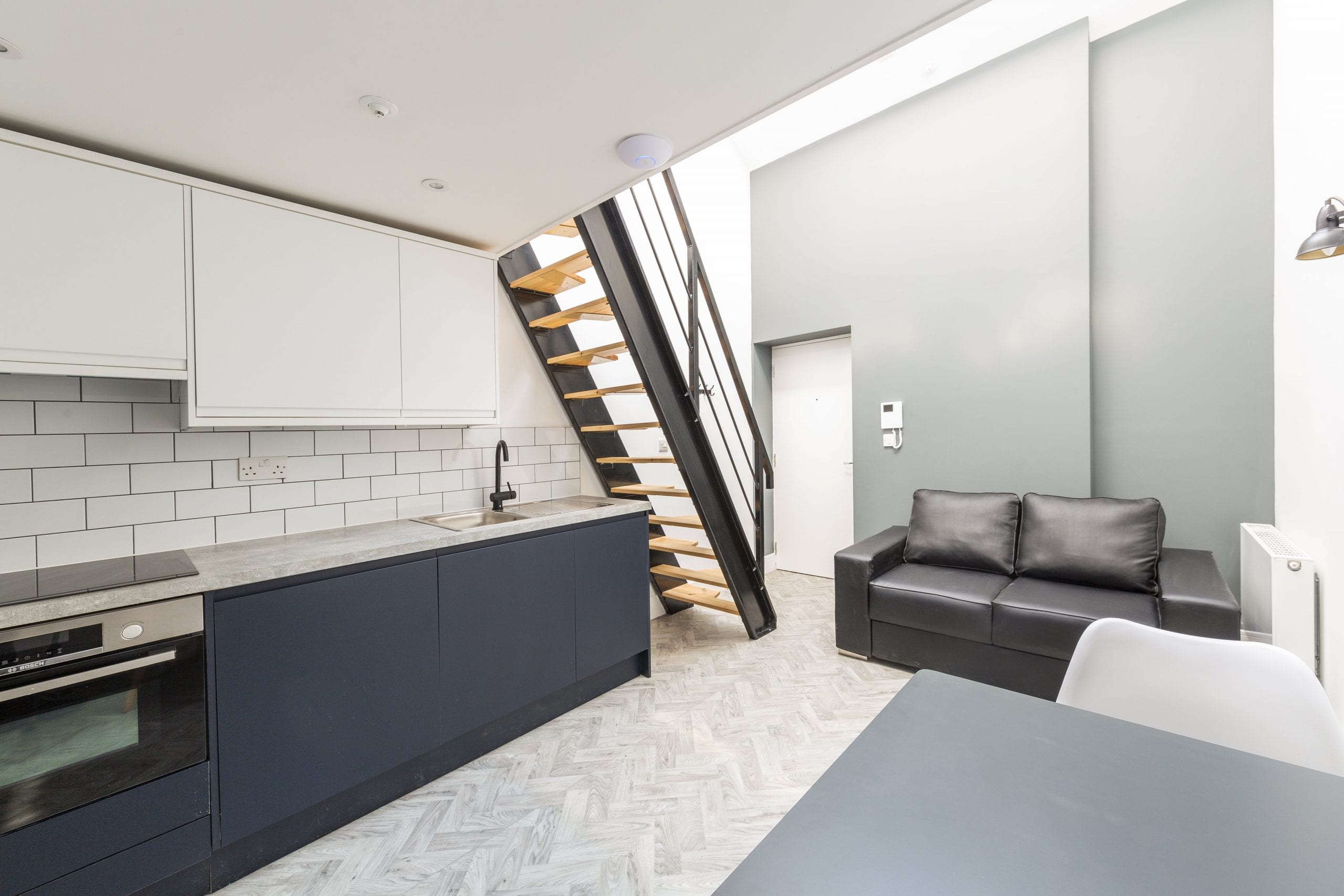
So, you have recently completed a refurbishment of a student accommodation block and you are ready for the new academic year. Your contractor has done a handover and provided you with all the necessary documentation relating to your renovation.
Whilst many construction firms will see this as the end of the project, we believe this is where the real quality of our work is revealed. As students start using the newly refurbished space, the fixtures and fittings, carpets and decorations will need to endure a lot of general wear and tear.
The 12-month period after works have been completed can be the most telling; this is why we arrange follow up site visits during this time to ensure our clients are still happy with the end result. Most purpose-built student accommodation providers refurbish their buildings every 5 – 7 years so we would expect to see our refurbishments last this period and beyond without needing much maintenance.
It is unfortunately common in the construction industry for project completion and handover to be given little focus. The responsibility of building performance and maintenance is passed over to the client and aftercare is a second thought. We do things a little differently here at Harris Evolution. We know that operational efficiency, building performance and maintenance is intrinsically linked to construction and refurbishment works.
Whilst we know design and visual aesthetics are important, durability and maintainability are crucial elements when it comes to student accommodation. To get true value for money, a project needs to either improve the function of the building or deliver a low whole-life cost (WLC). We take look at this in more detail and what factors impact WLC.
Minimise Maintenance Costs
The materials used within a refurbishment project will directly influence the cost of maintenance. Before works even begin, consult with your preferred contractor about the design and scope of works proposed. Your contractor should have a detailed knowledge of your sector and know which suppliers would be the most competitive and suitable for your project needs.
Your contractor should be able to tell you, if the furnishings, fixtures and fittings recommended are the best in the market. They might even be able to help you find better alternatives that are more durable and cost effective, based on how the building is going to be used.
Reduce energy waste
There can be opportunities to reduce energy waste when undertaking a refurbishment or construction project, which in turn creates cost savings in the long-term. To do this, energy management strategies need to be considered at the design stages.
Start by conducting an energy audit of the building to identify any energy saving opportunities. The recommendations proposed can then be incorporated within your designs to maximise the benefits of your project. Even subtle changes to a building can have a huge impact on your bottom-line, so it is worth considering.
Click here to learn more about smart building technology and energy waste management.
Enhance comfort conditions
The ultimate goal of a refurbishment project is to create a space that not only enhances the asset value for the client but also improves comfort conditions for the end users. Whilst design is key to this, so is the quality of work delivered by the contractor.
You need a space that can stand the test of time. There is little value in using building materials that will quickly look tired or need replacing regularly. Whilst repairs are expected throughout the lifecycle of a building, recently refurbished rooms shouldn’t deteriorate at such a rate that it negatively impacts living conditions for the end user.
To extend the life of our projects, we source materials that we know are suitable for the type of use expected in the buildings we work on. We look for the products that provide best value for money, not necessarily the cheapest, which ensures we create spaces that are not only high-quality but also durable.
Maximise operational efficiency and minimise operational cost
Once a refurbishment is complete, you should be handed an operation and maintenance manual. This is a comprehensive document that provides you with all the details necessary about your plant equipment and building maintenance. It is an instruction manual to help guide maintenance teams on the systems installed and how to repair them.
If you want to extend the life of your building, you will need to pay close attention to this document. It will contain important information about the warranties, how to keep everything operationally efficient and when you need to undertake maintenance or service equipment.
It is well known that buildings tend to not operate as intended which can often cause performance gaps with energy and operational efficiency. Some of the most common factors that affect operational efficiency can be addressed by carrying out regular maintenance.
Planned Preventative Maintenance (PPM) is essential to ensuring that buildings not only operate at optimum efficiency but also adhere to statutory requirements. It also helps to extend the life span of recent refurbishments, equipment, prevent plant degradation and failure.
Building Compliance and PPM Audits
You should not solely depend on your maintenance provider to alert you of potential issues or dilapidations. You should still review the quality of the maintenance undertaken to ensure your building remains compliant, plant equipment is operating efficiently and repairs are being carried out correctly.
Click here to learn more about PPM Audits.
Let’s chat
The whole life-cycle cost is an important factor in determining the true value of a project; this is why aftercare is so important to us. We have an extensive network of engineering and energy management specialists that can help our clients extend the life of their buildings and reduce operational costs.
If you are in the process of undertaking a student accommodation refurbishment or new build development, speak to us today on 0117 967 5923 or email enquiries@harrisevolution.com.
Alternatively, click here and check out some of our most recent projects

